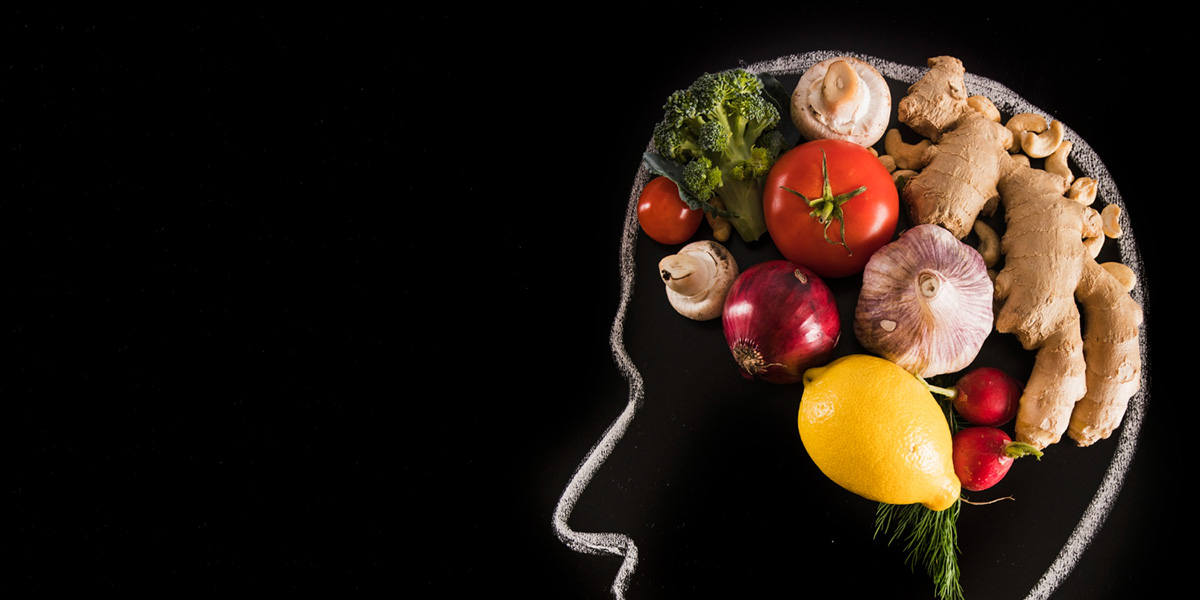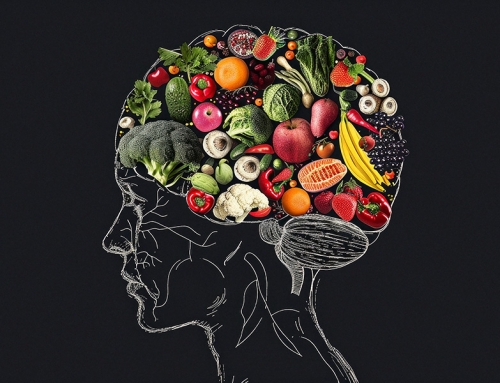Introduction
Nutrition informatics in mental health involves the application of information technology and data analysis to study the relationship between nutrition and mental well-being. It encompasses the use of digital tools to collect, manage, and analyze data related to dietary patterns, nutrient intake, and their impact on mental health conditions such as depression, anxiety, and cognitive function. By leveraging technology and data-driven approaches, nutrition informatics aims to better understand and address the links between nutrition and mental health, ultimately contributing to improved mental well-being and more effective interventions. (1)
Relation between Nutrition and Mental Health
Our increasing consumption of processed, high-calorie, and nutrient-poor foods has led to the dual problem of overweight and obesity along with associated nutritional deficiencies. Despite a rise in calorie intake, we’re falling short of recommended levels of essential micro- and macro elements vital for the proper functioning of our nervous system, such as B vitamins, zinc, and magnesium. Additionally, we’re consuming less fibre-rich vegetables and whole grains than recommended. These dietary patterns, combined with factors like smoking, limited physical activity, and harmful alcohol consumption, have detrimental effects on health and contribute to the development of mental disorders, including depression, whose potential for nutritional prevention is well-documented.
The antioxidant system, known to play a role in psychiatric disorder development, is pertinent here, and its effectiveness hinges on the presence of nutrient-rich foods. Furthermore, the concentration of brain-derived neurotrophic factor (BDNF), which is crucial for plasticity and neurodegenerative processes, relies on adequate nutrition. Research indicates that adhering to a healthy dietary pattern is linked to a reduced incidence of depression and suicide. The use of N-acetylcysteine has influenced therapy outcomes in conditions like schizophrenia, bipolar affective disorder, and trichotillomania, boasting anti-inflammatory, antioxidant, and neuroprotective properties. Zinc deficiency has been linked to the severity of depressive symptoms, and its supplementation alongside antidepressants aids in mood stabilization B vitamins are essential for proper nervous tissue functioning, with folic acid (vitamin B9) deficiency associated with depressive symptoms, especially in individuals with subpar responses to antidepressants. Low vitamin D levels have been correlated with a heightened risk of schizophrenia and depression. Research has demonstrated that vitamin D supplementation over three months significantly reduced the severity of depression symptoms, including irritability, fatigue, mood swings, sleep disturbances, weakness, and concentration difficulties, in adolescents diagnosed with depression. (2)
Wellbeing in Digital Age
Digital health technologies have forged unprecedented global connectivity, presenting a powerful avenue for enhancing well-being. Organizations such as the World Health Organization (WHO) are leveraging digital technology’s full potential to advance global health and well-being through initiatives like the Global Strategy on Digital Health 2020-2025, benefiting people of all ages worldwide. As the world increasingly integrates digital technology into daily life, the concept of “digital well-being” has emerged as a means of enhancing human satisfaction and subjective well-being in the era of excessive digital communication.
Key aspects of digital well-being encompass maximizing enjoyment and functional support while maintaining control and minimizing functional impairment. This concept holds significant promise in the realm of public health, particularly in a post-pandemic world where digital technology has become deeply ingrained in daily life. Factors like remote work, online education, and social isolation have heightened the importance of addressing mental health and well-being. Despite potential challenges such as the digital divide and varying digital literacy levels, digital health applications on mobile devices can collect vital health data, which can be valuable for both individuals and healthcare providers.
Beyond monitoring vital signs, digital health data can track medication adherence and indirectly promote health-conscious actions. For example, doctors can remotely monitor a diabetic patient’s walking regimen via a smartphone app or smartwatch.
The concept of “digital well-being” extends to mental health as well. By analyzing digital data, healthcare providers can gain insights into a patient’s mental health and well-being. Social media posts and chats can be analyzed to detect psychological conditions such as depression, suicidality, and anxiety. Computer algorithms can predict mental health issues based on specific phrases used in online interactions, triggering alerts for immediate intervention. While these advances hold promise, further research is needed to validate their efficacy.
In conclusion, digital health data offers the potential to revolutionize healthcare by providing comprehensive health assessments from various sources, including personal digital devices, physical examinations, and laboratory studies. This data-driven approach can inform healthcare system improvements, ultimately enhancing public health outcomes. (3)
Telemental – Pros & Cons
Telemental health involves employing telecommunications or videoconferencing technology to deliver mental health care, often referred to as telepsychiatry or telepsychology. Studies indicate that these remote mental health services can be beneficial for various individuals, potentially including those dealing with conditions such as attention-deficit/hyperactivity disorder (ADHD), post-traumatic stress disorder (PTSD), depression, and anxiety, among others. (4,5)
Pros:
- Convenient
- Broader reach
- Anonymity
- Lower cost
- Fewer barriers
- Consistency
- Support
- Advances in technology
Cons:
- Access to technology
- Quality issues
- Cost
- Privacy
- Overselling
Conclusion
In past decades, the connection between nutrition and individuals’ mental well-being received insufficient attention, as demonstrated by the limited research conducted in this field prior to the 21st century. However, there has been a noticeable shift in recent years, reversing this trend. The idea of “DIGITAL WELL-BEING” holds significant importance for the future and should be integrated into our healthcare system. It is crucial at this moment to redefine health by including the “DIGITAL WELL-BEING” aspect. Given the ongoing transformations, such as urbanization, globalization, including changes in the food industry, and shifts in people’s lifestyles and dietary patterns, the relationships between these factors and their influence on mental health are gaining significance. Thus, it is important to incorporate nutritional informatics in the mental healthcare system. (2,3)
References
- Fusar-Poli, Paolo., Salazar de Pablo, Gonzalo., De Micheli, Andrea., Nieman, Dorien H., Correll, Christoph U., Kessing, Lars Vedel., Pfennig, Andrea., Bechdolf, Andreas., Borgwardt, Stefan., Arango, Celso., Amelsvoort, Therese van., What is good mental health? A scoping review. European Neuropsychopharmacology, Volume 31, 2020, Pages 33-46, ISSN 0924-977X, //doi.org/10.1016/j.euroneuro.2019.12.105.
- Grajek, M., Krupa-Kotara, K., Białek-Dratwa, A., Sobczyk, K., Grot, M., Kowalski, O., & Staśkiewicz, W. (2022). Nutrition and mental health: A review of current knowledge about the impact of diet on mental health. Frontiers in nutrition, 9, 943998. //doi.org/10.3389/fnut.2022.943998
- Bhattacharya, S., Bhattacharya, S., Vallabh, V., Marzo, R. R., Juyal, R., & Gokdemir, O. (2023). Digital Well-being Through the Use of Technology-A Perspective. International journal of MCH and AIDS, 12(1), e588. //doi.org/10.21106/ijma.588
- National Institute of Mental Health. What is Telemental Health? NIMH Publication No. 21-MH-8155. //www.nimh.nih.gov/health/publications/what-is-telemental-health
- National Institute of Mental Health. Technology and the Future of Mental Health Treatment. //www.nimh.nih.gov/health/topics/technology-and-the-future-of-mental-health-treatment






Leave A Comment